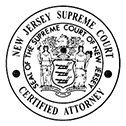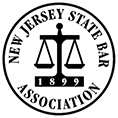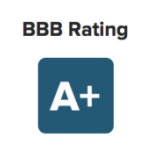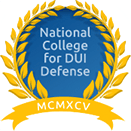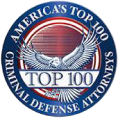Cranford NJ Bad Check Lawyer
Passing a bad check in the Township of Cranford or anywhere else in Union County can be a serious matter. Indeed, all you have to do is issue a check in the amount of $200 or more and automatically face a felony at the courthouse in Elizabeth. A bad check charge is therefore nothing to take lightly. The attorneys in the Union Township office, The Law Offices of Jonathan F. Marshall have extensive experience handling bad check charges as former county and municipal prosecutors with over 100 years in practice combined. We defend theft by deception and bad charge offenses at the Union County Superior Court and in municipal courts like the one in Westfield and Summit. A lawyer is available 24/7 to assist individuals like you by calling 908-272-1700. Do not hesitate to contact us for a free consultation.
‘Issuing a Bad Check’ Under N.J.S.A. 2C:21-5
The New Jersey Bad Check Law is set forth at N.J.S.A. 2C:21-5. This provision provides, in relevant part, that:
A person who issues or passes a check or similar sight order for the payment of money, knowing that it will not be honored by the drawee, commits an offense as provided for in subsection c. of this section. For the purposes of this section as well as in any prosecution for theft committed by means of a bad check, an issuer is presumed to know that the check or money order (other than a post-dated check or order) would not be paid, if:
a. The issuer had no account with the drawee at the time the check or order was issued; or
b. Payment was refused by the drawee for lack of funds, or due to a closed account, after a deposit by the payee into a bank for collection or after presentation to the drawee within 46 days after issue, and the issuer failed to make good within 10 days after receiving notice of that refusal or after notice has been sent to the issuer’s last known address. Notice of refusal may be given to the issuer orally or in writing in any reasonable manner by any person.
For the state to obtain a conviction for Bad Checks under N.J.S.A. 2C:21-5, two elements must be proved beyond a reasonable doubt:
- That defendant knowingly issued [or passed] a check [or sight order] for the payment of money and
- That defendant knew at the time he/she issued [or passed] the check [or sight order] that it would not be honored by the drawee.
Often, our firm is able to defend ‘bad check’ charges by defeating the state’s proof of knowledge that the payment or check would be bad. It is important for any Bad Check case to get an experienced attorney involved as soon as possible, to maximize any chance of a successful plea deal or dismissal.
Various Degrees of a Bad Check Offense and Amount in Controversy
The grading or severity of a bad check offense hinges on the amount to which the check was written. In this regard, the degree of crime and monetary thresholds for the writing of a bad check are as follows:
- $75,000 or more is a second degree crime. A second degree bad check offense is punishable by 5-10 years in jail.
- $1,000 to $75,000 is a third degree crime. A third degree carries a sentence of up to 5 years in jail.
- $200 to $1,000 is a fourth degree crime. A fourth degree offense could involve up to 18 months in jail.
- $1 to $200 is a disorderly persons offense. The maximum jail on a disorderly persons offense for writing a bad check is 6 months.
Union Township Bad Check Defense Attorneys
Anyone arrested and/or charged with a bad check offense should hire an attorney immediately as much of the damage associated with this charge can be minimized through proactive efforts of an experienced attorney. The lawyers at our firm can, in fact, often obtain a downgrade and, in some cases, even a dismissal, of a bad check charge if retained early. Our defense team includes eight criminal defense attorneys, several of whom possess over 20 years in practice defending bad check and other criminal cases. Whether your charge is in Kenilworth, Cranford, Mountainside, Springfield, Berkeley Heights or another town, a lawyer at the firm is well equipped to defend you. Call us anytime to have your questions answered at 908-272-1700.


